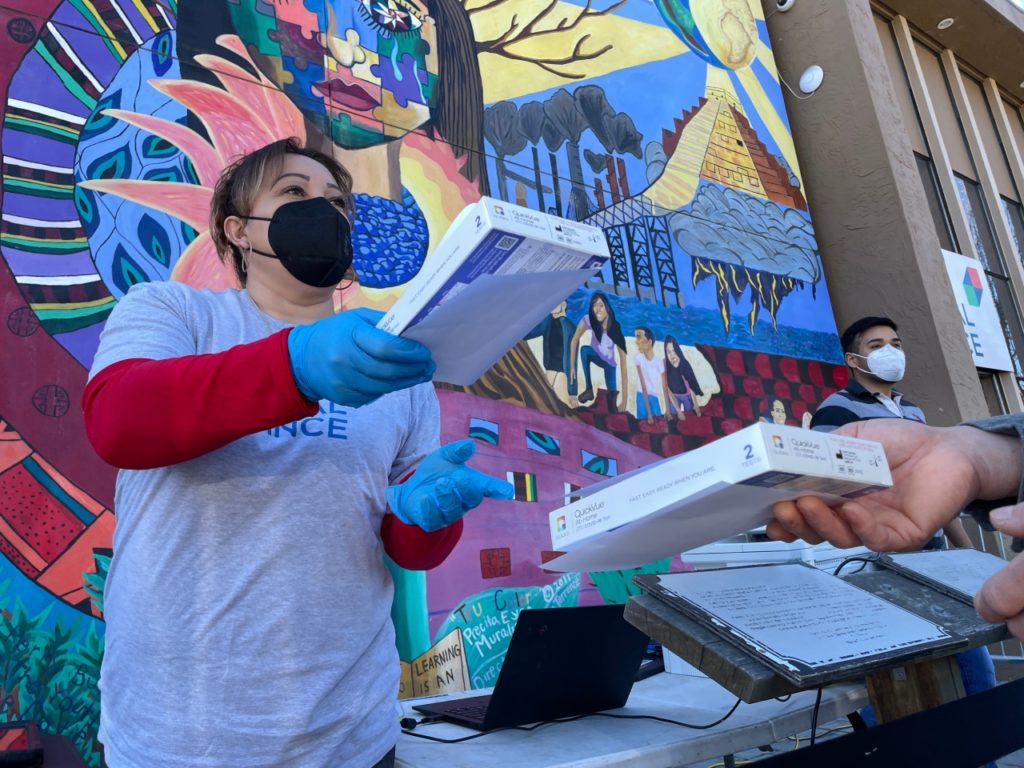Marin leaders promote COVID boosters in Canal area
February 20, 2022
By Natalie Hanson

Marin County’s public health office, hoping to get more COVID-19 booster shots into arms, is set to expand mobile vaccination clinics in San Rafael’s predominately Latino Canal neighborhood.
Dr. Lisa Santora, deputy public health officer, said the county plans to roll out more mobile sites and appointment windows at locations such as Pickleweed Park now that the countywide mass vaccination effort over the winter is winding down.
“We’ll be refocusing our efforts and our resources back into vulnerable communities,” Santora said.
Omar Carrera, executive director of Canal Alliance, said the neighborhood has immediate need for outdoor mobile vaccination sites and a stronger education campaign to aid outreach workers.
“Removing barriers to access vaccines has been crucial to the community,” Carrera said.
After a strong start during the initial vaccine rollout, many Canal residents have been slow to get a booster shot. As of Feb. 12, about 40% of those living in the Canal area who are eligible for a booster shot had received one, compared to 72% countywide, according to the county. Of those eligible, 93.2% in the Canal have been fully vaccinated with two doses, compared to 91.5% of eligible people countywide.
Lee Ann Prebil, an epidemiology consultant for the county, said data comparisons are affected because older residents are more likely to be boosted and the Canal’s population is ”skewed much younger than the Marin population overall.” In the Canal’s two census tracts, 83% and 71% of residents 65 and older have received a booster shot, according to county figures.
Canal Alliance offers free COVID-19 testing on Tuesdays and Fridays. Vaccinations are being administered at the Marin Health and Wellness Campus on Kerner Boulevard.
Yolanda Oviedo, Canal Alliance coronavirus response manager, said she hears regularly that centralized mobile outdoor clinics staffed with local volunteers are needed to improve access for those pressed for time or who are hesitant to get a shot.
“They are helped by someone who speaks their language, who lives in their community and can relate to their challenges,” Oviedo said.
Read the full story on the Marin IJ: